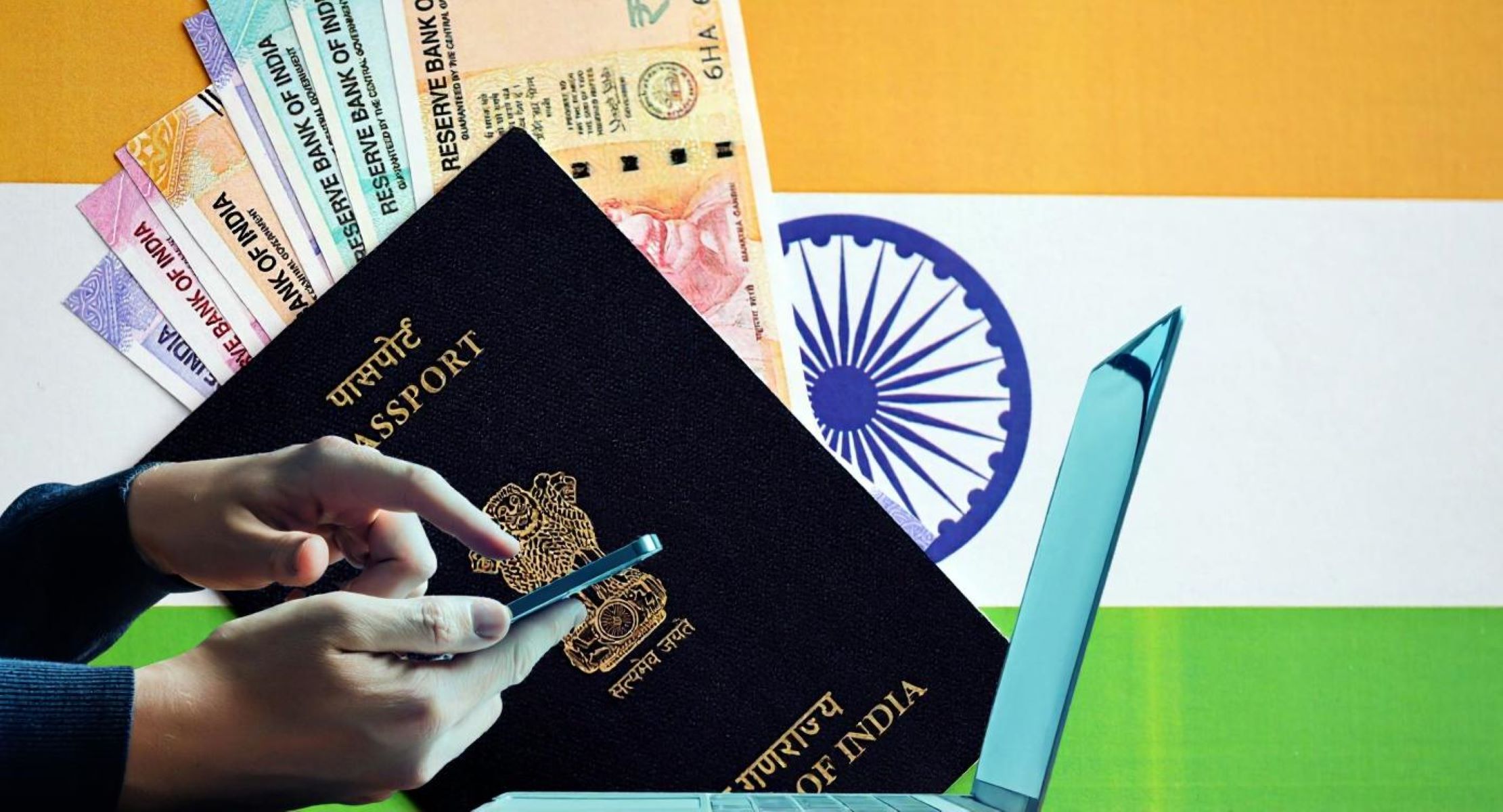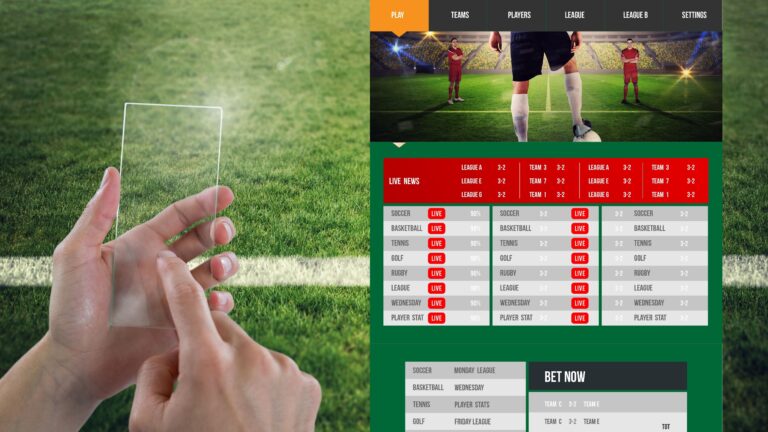Ever wondered how Indian bookmakers keep things secure and legit? The key lies in customer verification. In the bustling world of sports betting and online casinos, verifying who you are isn’t just a formality—it’s a necessity. From preventing fraud to abiding by laws, customer verification is the backbone of trust between bookmakers and bettors. In this article, we’re going to break down exactly how Indian bookmakers approach customer verification. We’ll dive deep into the tools, processes, legal backdrop, and how it shapes your experience as a player. Grab a cup of chai, and let’s explore!
What is Customer Verification in Bookmaking?
Customer verification in bookmaking, often referred to as KYC (Know Your Customer), is a critical process that ensures the safety, legality, and transparency of online betting platforms. At its core, this procedure is used by bookmakers to confirm the identity of their users. With the rapid growth of digital gambling in India and around the world, verifying who is playing is not just about protecting the platform—it’s about ensuring that each player is genuinely who they say they are. Without proper verification, online bookmakers could become breeding grounds for identity fraud, money laundering, and underage gambling.
This process typically involves collecting personal identification information from the user, such as full name, date of birth, address, and documentation like Aadhaar cards, PAN cards, or passports. In many cases, users are also required to submit proof of address and verify their phone number or email. This information is then reviewed by the bookmaker’s compliance team or a third-party verification provider using a combination of manual checks and automated software. Some platforms even employ AI-driven tools to detect document forgery, inconsistencies, or suspicious activity patterns during the signup phase.
But why is this process so essential in bookmaking? First, it protects users from having their accounts hacked or misused. Second, it helps bookmakers comply with both international and local laws related to anti-money laundering (AML), counter-terrorism financing, and data protection. In India, where online gambling regulations vary by state and are often ambiguous, customer verification adds a layer of legitimacy to betting platforms. It demonstrates that the operator is serious about compliance and ethical gaming, which in turn builds trust with players.
Customer verification also lays the groundwork for a smoother gaming experience. For example, players with verified accounts typically enjoy faster withdrawals, access to exclusive promotions, and higher betting limits. It reduces the risk of transaction delays and account restrictions. More importantly, in the event of a dispute or account recovery issue, having a verified identity makes it easier to prove ownership. While it may seem like a hassle at first, customer verification is a vital part of responsible gambling and a key element in creating a secure, fair environment for everyone involved.
Why Do Indian Bookmakers Need to Verify Customers?
| Reason for Verification | Purpose | Impact on Players | Impact on Bookmakers | Legal Relevance |
| Prevent Underage Gambling | Ensures that only individuals aged 18 and above can access betting services | Protects minors, avoids addictive behavior in vulnerable groups | Helps avoid legal action and brand damage | Required under state-specific betting and child protection laws |
| Combat Fraud & Money Laundering | Stops use of fake identities and illegal funds through betting platforms | Enhances account security and transaction integrity | Shields the business from regulatory penalties and criminal misuse | Aligned with AML and IT Act compliance |
| Comply with Indian Law | Meets state-level licensing and operational requirements | Encourages transparent and fair gameplay | Builds trust with regulators and law enforcement | Vital for operations in regulated states like Sikkim and Goa |
| Protect Customer Accounts | Verifies ownership and activity tied to a legitimate individual | Prevents unauthorized access and loss of funds | Reduces customer disputes and support issues | Part of responsible business practices |
| Build Trust and Platform Credibility | Demonstrates integrity and ethical standards in operations | Gives players confidence in the platform’s legitimacy | Attracts long-term users and partnerships | Reinforces adherence to IT and consumer protection laws |
Common Customer Verification Methods Used by Indian Bookmakers
So, how do Indian bookmakers actually verify their customers? They rely on a range of methods, blending traditional document checks with modern digital technologies to ensure security, legal compliance, and a seamless user experience. Below is a detailed list of the most commonly used customer verification methods across betting platforms in India:
- Identity Document Verification – This is the most widely used approach. Players are required to submit valid government-issued identity documents that clearly display their name, date of birth, and a photograph. The most commonly accepted documents include Aadhaar Cards, PAN Cards, Passports, and Driver’s Licenses. These IDs help verify the customer’s identity, age, and authenticity. The documents are usually uploaded as scanned copies or clear photographs, and the bookmaker uses either manual staff checks or automated software to confirm validity.
- Aadhaar-Based Verification – The Aadhaar Card is often preferred by both users and operators because it’s nearly universally held by Indian citizens. It contains biometric and demographic data, making it an effective tool for identity confirmation. Aadhaar numbers are frequently linked to mobile numbers and bank accounts, which further strengthens verification accuracy. However, due to privacy regulations, many platforms avoid directly storing Aadhaar data and instead verify it through secure, government-approved APIs or masked credentials.
- PAN Card Submission – The PAN (Permanent Account Number) card is a vital identification tool in India, especially for financial transactions. It’s often used by bookmakers to confirm the identity of users, particularly for tax reporting and high-value withdrawals. This card ensures that the player is a legitimate resident and provides a financial trail that can be traced, which helps in combating money laundering.
- Passport and Driver’s License Scans – Some users prefer to submit their passport or driver’s license, especially if they’re playing from regions where Aadhaar may not be commonly used for verification purposes. These documents are strong forms of identification and are generally accepted by all major bookmakers.
- Address Verification Through Documents – In addition to proving identity, bookmakers often require users to confirm their residential address. This helps ensure compliance with state-specific laws and verifies that users are not attempting to bypass regional restrictions. Accepted documents include recent utility bills (electricity, water, or gas), bank account statements, rent agreements, or official government letters. These documents typically need to be dated within the last 3 to 6 months and must clearly show the user’s name and address.
- Mobile Number Verification – This method is usually the first step during registration. The bookmaker sends a one-time password (OTP) via SMS to the mobile number entered by the user. Once the OTP is entered correctly, the mobile number is considered verified. This step not only confirms the number’s authenticity but also links the account to a contact point that can be used for security alerts, account recovery, and transactional updates.
- Email Address Verification – Similar to mobile number verification, a confirmation email containing a verification link or code is sent to the user’s email. Once the user clicks the link or enters the code, their email address is verified. This step is essential for communication, promotional notifications, and added account security.
Step-by-Step: How the Verification Process Usually Works
When a user signs up with an Indian bookmaker, the verification process kicks off almost immediately. It all starts with a basic registration form where players are asked to provide their full name, email address, and phone number. This simple information is the foundation of their profile, and it sets the stage for everything that follows. Once the details are submitted, the system typically sends a one-time password (OTP) to both the email and mobile number provided. This step ensures the contact information is valid and actively used by the person registering, not a random or stolen identity.
Once the OTP is confirmed, the user moves to the next stage: uploading identity documents. These are typically government-issued IDs like Aadhaar, PAN, or passports. The platform requests clear, high-quality images or scans of these documents to confirm the player’s identity, date of birth, and nationality. This is a crucial part of the Know Your Customer (KYC) process, as it helps the bookmaker verify that the person is legally allowed to participate in betting activities—especially ensuring they are above the legal age limit. At this point, some platforms may also ask for a live selfie to compare with the ID photo, just to double-check that everything matches.
After the documents are uploaded, they are passed on to the bookmaker’s internal verification team or a third-party service for review. These teams use a combination of manual checks and AI tools to validate the authenticity of the uploaded IDs. They look for signs of tampering, expired documents, and discrepancies between what was submitted and what was entered during registration. If address verification is required—which often depends on the state the user resides in—the player may be prompted to upload a recent utility bill, bank statement, or rental agreement. This helps ensure that the individual is not using a false address or trying to bypass regional restrictions.
Finally, depending on the platform’s security protocols, biometric verification may be introduced. This could involve a fingerprint scan or facial recognition, especially on mobile apps. While not always mandatory, it adds a strong layer of protection. Once all the checks are complete, the account is either approved or flagged for further review. If everything’s in order, the user gets full access to the betting site, including deposit and withdrawal functions. If issues are found—like blurry documents or mismatched data—the platform usually contacts the user with a request to resubmit or provide additional proof. This step-by-step process, while thorough, is designed to protect both the bookmaker and the player, ensuring a safe and fair betting environment.
Technology Behind Customer Verification
| Technology | Purpose | How It Works | Benefits for Bookmakers | Impact on Players |
| Artificial Intelligence (AI) & Machine Learning (ML) | Detects document forgery, fraud patterns, and unusual user behavior | Learns from past data to identify fake documents and risky accounts automatically | Reduces manual review workload and speeds up approvals | Faster verification, fewer document resubmissions |
| Optical Character Recognition (OCR) | Extracts readable text from images of ID and address documents | Scans uploaded images and converts visual data into structured text for review | Minimizes human error, makes data entry more efficient | Quicker form completion, less chance of mismatched details |
| Blockchain Identity Solutions | Creates secure, tamper-proof digital identities | Stores verified identity data on decentralized, encrypted ledgers | Virtually eliminates ID forgery and enables instant cross-checks | Greater data security, more trust in identity sharing |
| Biometric Authentication | Confirms real-time identity through facial or fingerprint data | Matches live photos or biometric scans with ID document data | Prevents identity theft and account takeovers | Easier, password-free verification methods |
| Automated Document Verification APIs | Validates ID documents via third-party or government databases | Uses secure APIs to cross-check uploaded IDs with official data records | Ensures legitimacy of IDs and speeds up KYC processing | Higher accuracy, reduced waiting time |
Challenges Indian Bookmakers Face in Customer Verification
Verification might sound like a simple step in the registration process, but Indian bookmakers face a surprising number of challenges when trying to confirm a user’s identity accurately and securely. From technological limitations to social and regional complexities, the verification process must be carefully designed to handle a wide range of obstacles. These hurdles can affect not only the operator’s ability to verify accounts efficiently but also the user’s overall experience.
- Privacy and Data Security Concerns
Many Indian users are wary about sharing personal identification documents online. With growing awareness of cyber threats and data leaks, players often hesitate to upload Aadhaar cards, PAN cards, or even selfies. They’re concerned about how their sensitive information will be stored, whether it will be shared with third parties, and how it might be used in the future. Bookmakers must invest heavily in cybersecurity and transparent data protection policies to win users’ trust and stay compliant with privacy laws like the IT Act. - Unreliable Internet Connectivity and Digital Access Gaps
Not every user in India has access to high-speed internet, especially those living in rural or remote areas. Uploading clear, high-resolution scans of identity documents can be difficult or even impossible with poor connectivity. Some users also lack access to smartphones or devices capable of capturing quality images. This limits their ability to complete KYC steps smoothly and can result in failed or delayed verifications. - High Volume of Fake or Altered Documents
Despite sophisticated technologies, fake IDs and photoshopped documents remain a significant issue. Scammers often try to exploit weaknesses in verification systems by submitting manipulated files that appear legitimate on the surface. Bookmakers must constantly update their detection systems, train review teams, and use AI to spot red flags such as mismatched fonts, incorrect signatures, or inconsistencies between uploaded documents and user-submitted data. - Regional and Linguistic Diversity
India is a country of immense diversity, with dozens of official languages, various government ID formats, and state-specific documentation norms. What’s considered valid ID in one state may not be acceptable in another. This creates challenges for bookmakers when designing a one-size-fits-all verification system. They must accommodate different scripts (like Hindi, Bengali, Tamil), regional address formats, and even local naming conventions. Failure to do so can lead to misidentification or unnecessary verification rejections. - Inconsistent Document Quality
A large number of users submit poorly lit, blurred, or incomplete documents, often due to low-quality cameras or lack of guidance during the upload process. Bookmakers then need to manually request resubmissions, which slows down the process and frustrates users. This creates a bottleneck in verification and increases the workload for compliance teams. - Limited Government Database Access for Real-Time Validation
Unlike some countries with centralized national identity databases that are accessible to verified service providers, Indian bookmakers often lack access to real-time validation sources. Without official integration with Aadhaar or PAN systems, they must rely on third-party services or manual checks, which can be slow and less accurate. This increases the risk of errors and prolongs the customer onboarding process. - Legal Ambiguity and Varying State Regulations
Gambling laws in India are governed at the state level, and many states either prohibit online betting entirely or have vague regulations. Bookmakers operating across state borders must navigate a confusing patchwork of legal expectations. They need to tailor their verification approach based on each user’s location, which adds operational complexity and legal risk if not handled correctly.




